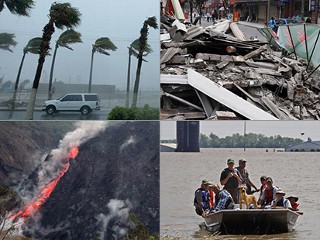
August 10, 2009 - Defense officials are writing a new U.S. nuclear policy that could blow up President Obama's declared agenda. The White House must reassert its control.
The Nuclear Posture Review, or NPR, will be issued at the end of the year, but Obama's defense officials are briefing others in the administration this week, hoping to lock in their policies before the end of the month.
Why should you care? Joan Rohlfing, vice-president of the Nuclear Threat Initiative headed by Sam Nunn and Ted Turner, explained in a speech before the Arms Control Association on May 20: Read more at: http://www.huffingtonpost.com/joe-cirincione/the-pentagons-nuclear-pos_b_255517.html





